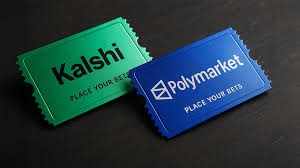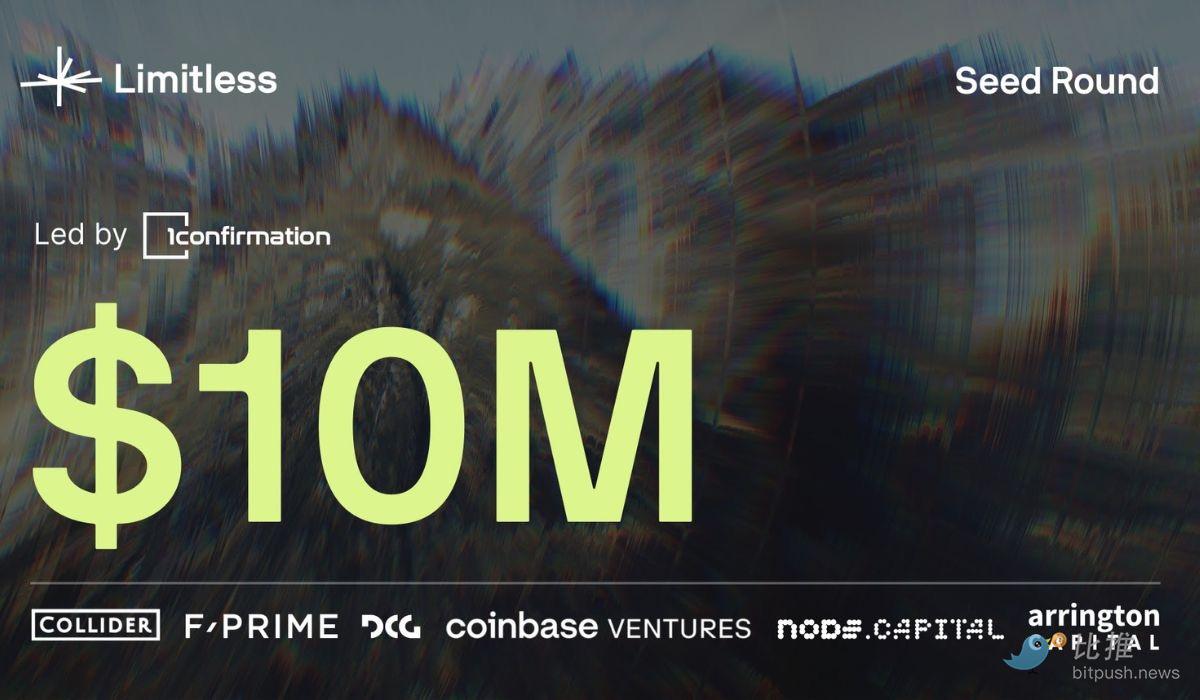Written by: Seed.eth
In four months, the valuation skyrocketed from $1 billion to $15 billion—this is the madness surrounding the prediction platform Polymarket.
Just yesterday, Bloomberg reported that Polymarket is seeking a new round of financing with a valuation target of $12-15 billion. It's worth noting that its valuation was only $1 billion in June of this year.
Meanwhile, its old rival Kalshi has just completed a $300 million Series D funding round led by Sequoia and a16z, with a valuation exceeding $5 billion, and some institutions have offered valuations as high as $10 billion.

Why have these "future prediction" platforms suddenly become the hottest assets? This can be attributed to several factors:
- The World is Addicted to Uncertainty
From the aftermath of the U.S. elections to escalating conflicts in the Middle East, global voters and investors are at peak anxiety about "what will happen next." Traditional polls can no longer meet the demand—Polymarket boasts a prediction accuracy rate of 90% for the 2024 elections, far surpassing mainstream media like CNN.
- The Blurred Line Between Investment and Gambling
Now you can bet on "the number of goals scored by the hockey team this season" on Kalshi, or wager with USDC on "whether the Federal Reserve will cut interest rates this month" on Polymarket. The simultaneous signing of contracts with both platforms by the NHL signifies that prediction markets are officially moving from the margins to the mainstream.
- A Spring for U.S. Regulation
Kalshi has obtained the first full license from the U.S. CFTC, and Polymarket has made a comeback by acquiring a licensed exchange. These two key breakthroughs have opened the door to compliance for the entire industry.
- AI Makes Predictions Smarter
Algorithms are taking over prediction markets. AI can analyze tens of thousands of social media posts in real-time, providing more accurate probabilities than human experts, transforming this field from "guessing" to "data-driven."
What other potential dark horses are there?
In addition to Kalshi and Polymarket, a number of new projects with precise positioning and innovative models are gaining momentum. This article compiles several noteworthy projects for your reference:
Limitless: The Liquidity Engine for High-Frequency Contracts
Limitless, which just had its TGE at the end of 2024, is headquartered in San Francisco and was founded by a team of former Coinbase engineers. It is positioned as a "short-cycle prediction market," focusing on hourly or even minute-level event contracts, such as "Will the price of SOL exceed $210 in the next hour?" or real-time sports betting. The project originated from the founder's observation of the fragmented liquidity in traditional prediction markets, and its earlier beta version on the Base chain attracted the attention of crypto traders.
Unlike Polymarket's daily/weekly settlements, Limitless emphasizes an "instant feedback" mechanism, achieving zero-latency execution through the integration of the Hyperliquid order book, which stands out in the high-volatility crypto environment of 2025.
In terms of financing, Limitless completed a $10 million Series A round in September 2025, led by Coinbase Ventures, with participation from 1confirmation and Paper Ventures, bringing the total funding to $17 million (including a $7 million seed round). Coinbase's involvement is not just a capital injection but also an ecosystem endorsement—its API integration allows Limitless to seamlessly connect to Coinbase Wallet, enabling users to bet directly with USDC. Nick Tomaino from 1confirmation praised it as a "new paradigm of DeFi liquidity," while Paper Ventures sees potential for expansion in sports betting. The current valuation is approximately $300 million, doubling since the seed round.

In just three months since its launch, the total trading volume has exceeded $500 million, and the user base has surged from 10,000 to 150,000 (a monthly growth of 150%). The Discord community has over 20,000 active users, with more than 500 events created weekly. On platform X, discussions under the #LimitlessPredictions topic have surpassed 100,000, indicating strong community engagement. The challenge lies in oracle accuracy, but the team has partnered with Chainlink to optimize data sources. Overall, Limitless is the top choice for high-frequency trading enthusiasts, and trading activity is expected to further increase after the mainnet launch in Q4.
As a compliance pioneer in sports and politics, Novig is a Boston startup founded in mid-2024, led by former DraftKings executives, focusing on a licensed platform for prediction contracts on sports events and political events. The project is rooted in the wave of sports betting legalization in the U.S., and Novig helps users place bets like "Will the total goals in the NFL this week exceed 50?" or "What will be the changes in Democratic seats in the 2026 midterm elections?" through built-in KYC and CFTC compliance modules. Its innovation lies in the "licensing as a service" model, allowing small and medium sports leagues to quickly launch prediction markets, lowering regulatory barriers.

In August 2025, Novig completed an $18 million seed round led by Union Square Ventures (USV), with participation from a16z Crypto and Robinhood Ventures, bringing the total funding to $25 million. The current valuation is $400 million, and it has piloted collaborations with two NHL teams.

Since the funding, the user base has skyrocketed from 50,000 to 250,000, with weekly trading volume stabilizing at $300 million, 70% of which comes from sports events. The team releases data reports weekly to enhance transparency. Despite facing competition from giants like DraftKings, Novig's compliance advantages make it a favorite among institutional investors, and if it gains more state licenses in the U.S. by 2026, its potential is limitless.
The Clearing Company was established in January 2025 by Toni Gemayel, former growth lead at Kalshi and Polymarket, and is headquartered in New York. It is positioned as a "next-generation prediction clearing and settlement platform." The background is the liquidity pain points in prediction markets: on-chain projects are vulnerable to hacks, and traditional platforms have slow settlement times. TCC offers millisecond-level clearing through a hybrid architecture (Ethereum L2 + centralized custody), supporting dual settlement in real currency and USDC, applicable to political, economic, and entertainment events. Its "dispute resolution DAO" mechanism allows community voting to arbitrate disputes and has handled over 100 cases on the testnet. In August 2025, it completed a $15 million seed round led by USV, with Coinbase Ventures and Paradigm participating, bringing the total to $20 million. The team has also received angel investments, including from former CFTC officials, providing policy guidance. However, the current activity on X is average, and it will be worth monitoring for sustainability.
Opinion Labs (Opinion) launched in March 2025 in Singapore, incubated by YZi Labs, with a founding team that includes former Binance AI researchers, focusing on "belief markets"—where users bet on abstract concepts like "Will AI replace 50% of white-collar jobs by 2026?" The background stems from the fragmentation of opinions on social media, and O.LAB uses AI oracles to aggregate data from X and Reddit, providing dynamic probability updates and supporting bets with any ERC-20 token. Its zero-licensing feature allows creators to create markets with just one click, with a fee of only 0.2%.

In terms of financing, it completed a $5 million pre-seed round in March 2025, led by YZi Labs, with participation from Amber Group and Animoca Ventures, bringing the total to $8 million. YZi Wang described it as a "dynamic opinion aggregator," with plans for TGE in Q4 on the BNB Chain.
Melee is a "viral prediction market" launched in February 2025 within the Solana ecosystem, developed by a team supported by the Variant fund, with a founder who is a former Twitter growth hacker, focusing on pop culture events like "Will the next album by a K-pop idol sell more than X copies?" The background is the fragmentation of entertainment predictions, and Melee allows permissionless market creation, with a 20% fee share for creators, integrating an X share button to achieve "one-click viral spread."

In 2025, Melee completed a $3.5 million pre-seed round, led by Variant, with angel investment from Solana co-founder Anatoly Yakovenko, bringing total funding to $5 million. Variant's Jesse Walden praised the integration of "creator economy + prediction," while Anatoly provided technical guidance. The valuation is $150 million, and the mainnet is currently in internal testing. Melee has 50,000 internal testers, with a weekly trading volume of $80 million and a growth rate of 50% per week. As a social dark horse, Melee has strong virality, but attention must be paid to the proliferation of low-quality events. If it secures partnerships in sports, such as with the NHL, its potential will continue to be amplified.
PredX was established in 2023 and is headquartered in New York, led by former Visa research scientist Bowen Jiang, focusing on decentralized prediction markets that support betting on financial, political, and sports events.
Its core innovation lies in the AI recommendation engine, which uses machine learning to aggregate real-time data, providing personalized probability predictions and achieving transparent settlements through blockchain.
The platform has partnered with Reddio and ARPA Network to advance ZKML technology, enhancing the verifiability of AI predictions. In terms of financing, it completed a $500,000 pre-seed round in February 2024, led by Malana Ventures and Penrose (Texas), with a post-investment valuation of $20 million and total funding of $500,000, primarily used for AI enhancement and user growth.
User data is gradually showing activity: the community is estimated to have a user base of 10,000 to 50,000, with a monthly growth rate of 20-30%. Its potential lies in AI + localization (such as expansion into Asian events); if it secures Series A or TGE by the end of 2025 and addresses liquidity bottlenecks, it could become an understated leader in Web3 AI predictions.
免责声明:本文章仅代表作者个人观点,不代表本平台的立场和观点。本文章仅供信息分享,不构成对任何人的任何投资建议。用户与作者之间的任何争议,与本平台无关。如网页中刊载的文章或图片涉及侵权,请提供相关的权利证明和身份证明发送邮件到support@aicoin.com,本平台相关工作人员将会进行核查。



